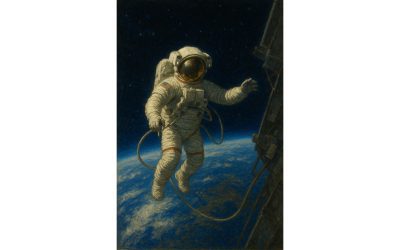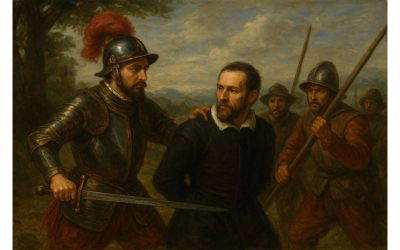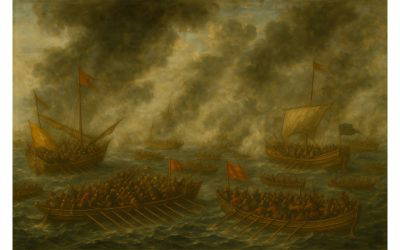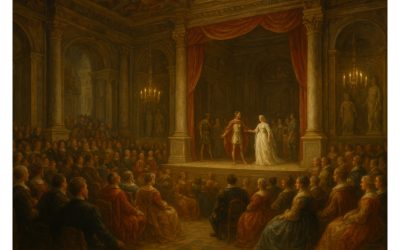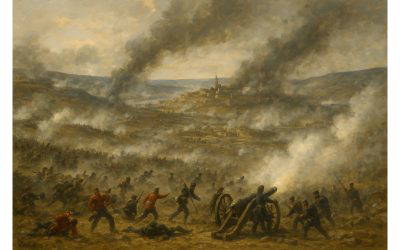Salem Witch Trials
On the 12th of October, 1692, the Salem Witch Trials were ended by a letter from William Phipps, the Governor of the Province of Massachusetts Bay. I’ve posted about the Pendle Witch Trial, and Called to Account, the fourth book in the Sir Anthony Standen Adventures,...
Space Flight
The events that jump out for me on the 11th of October concern space flight. On this day in 1968 NASA launched Apollo 7, the first successful crewed Apollo mission. Also on the 11th of October, but in 1984, Kathryn D. Sullivan became the first American woman to...
Philippe de Mornay
On the 10th of October, 1575, Roman Catholic forces under Henry I, Duke of Guise, defeated the Protestants and captured, amongst others, Philippe de Mornay. There are several points at which the stories of Philippe de Mornay and my ancestor, Sir Anthony Standen...
Che Guevara
On the 9th of October, 1967, Che Guevara was executed for attempting to incite revolution in Bolivia. It’s over forty years since I was a student at Oxford, but I remember that almost every student’s room had the iconic poster of Che Guevara on the wall, and the male...
Siege of Alkmaar
My choice of historical event for the 8th of October is the Siege of Alkmaar, which began on the 21st of August 1573. It was as a pivotal event in the Eighty Years' War, marking the first decisive defeat of the Spanish forces by the Dutch rebels. This victory not only...
Battle of Lepanto
The Battle of Lepanto was fought on the 7th of October, 1571. What caught my attention about this battle is that it was the last major naval battle in the Western world to be fought, almost entirely, between galleys, that is to say, rowing vessels. This is only ...
Eurydice
There were several historical events that tempted me today. The 6th of October marked the premier of The Jazz Singer, the first talking picture in 1927. I was tempted by the start of the Yom Kippur War in 1973. Instead I have opted for Eurydice, the earliest...
Paolo Sarpi
An attempted assassination of Paolo Sarpi, commissioned by Pope Paul V, was thwarted on the 5th of October, 1607. This was one of the inspirations for Fire and Earth, the second book in the Sir Anthony Standen Adventures. Paolo Sarpi (1552–1623) was a Venetian...
Crimean War
Wikipedia tells me that on the 4th of October, 1853, the Ottoman Empire declared war on Russia, thereby starting the Crimean War. It seems topical as it involves both Palestine and Russia. The war primarily pitted the Russian Empire against an alliance comprising the...
Salem Witch Trials
On the 12th of October, 1692, the Salem Witch Trials were ended by a letter from William Phipps, the Governor of the Province of Massachusetts Bay. I’ve posted about the Pendle Witch Trial, and Called to Account, the fourth book in the Sir Anthony Standen Adventures,...
Space Flight
The events that jump out for me on the 11th of October concern space flight. On this day in 1968 NASA launched Apollo 7, the first successful crewed Apollo mission. Also on the 11th of October, but in 1984, Kathryn D. Sullivan became the first American woman to...
Philippe de Mornay
On the 10th of October, 1575, Roman Catholic forces under Henry I, Duke of Guise, defeated the Protestants and captured, amongst others, Philippe de Mornay. There are several points at which the stories of Philippe de Mornay and my ancestor, Sir Anthony Standen...
Che Guevara
On the 9th of October, 1967, Che Guevara was executed for attempting to incite revolution in Bolivia. It’s over forty years since I was a student at Oxford, but I remember that almost every student’s room had the iconic poster of Che Guevara on the wall, and the male...
Siege of Alkmaar
My choice of historical event for the 8th of October is the Siege of Alkmaar, which began on the 21st of August 1573. It was as a pivotal event in the Eighty Years' War, marking the first decisive defeat of the Spanish forces by the Dutch rebels. This victory not only...
Battle of Lepanto
The Battle of Lepanto was fought on the 7th of October, 1571. What caught my attention about this battle is that it was the last major naval battle in the Western world to be fought, almost entirely, between galleys, that is to say, rowing vessels. This is only ...
Eurydice
There were several historical events that tempted me today. The 6th of October marked the premier of The Jazz Singer, the first talking picture in 1927. I was tempted by the start of the Yom Kippur War in 1973. Instead I have opted for Eurydice, the earliest...
Paolo Sarpi
An attempted assassination of Paolo Sarpi, commissioned by Pope Paul V, was thwarted on the 5th of October, 1607. This was one of the inspirations for Fire and Earth, the second book in the Sir Anthony Standen Adventures. Paolo Sarpi (1552–1623) was a Venetian...
Crimean War
Wikipedia tells me that on the 4th of October, 1853, the Ottoman Empire declared war on Russia, thereby starting the Crimean War. It seems topical as it involves both Palestine and Russia. The war primarily pitted the Russian Empire against an alliance comprising the...


